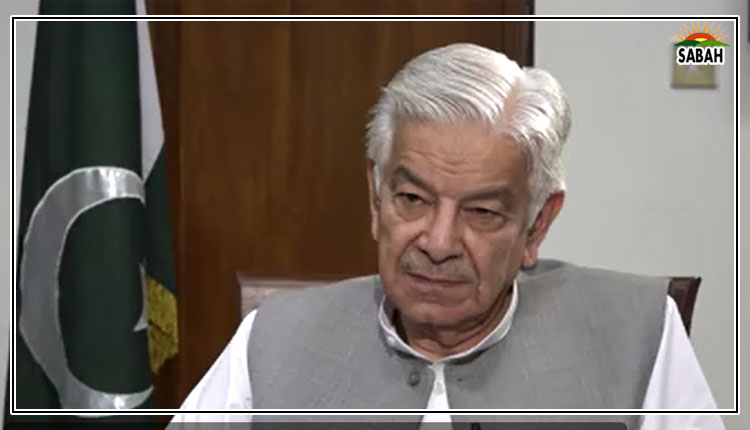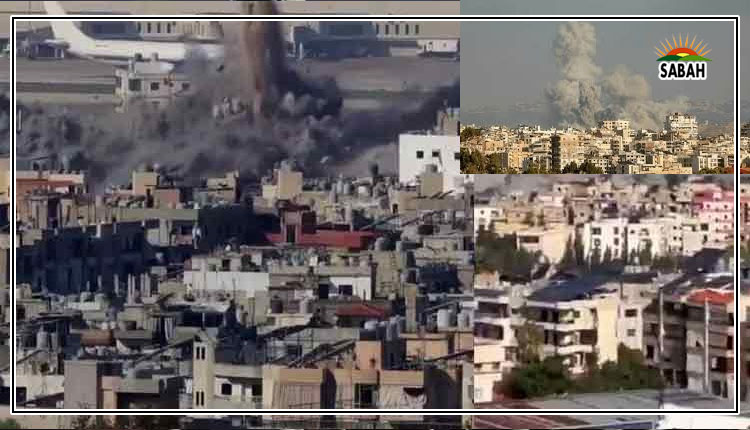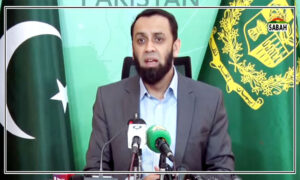Climate education…Zile Huma
The International Day of Education is observed every year on January 24 to sensitize people about the role of education to promote progress and development. The theme of this years International Education Day was: to invest in people, prioritize education.
Pakistan faces many challenges in the field of education like making it inclusive, accessible for all, and diverse in terms of fields of study. One such important area that requires our special attention is climate change.
Climate change disasters and lack of attention on climate change education are directly proportional to each other. Lack of initiatives in climate change education fails to produce research-based policies and absence of research-based policies on climate change leads to impractical projects to mitigate and adapt to climate change.
As a result of this vicious cycle and development greed of rich nations, Pakistan is among the top ten countries most impacted by climate change. Pakistan has been witnessing multifarious climate-led catastrophes like glacier melt, floods, smog, heatwaves, etc. As a result of these disasters, the alarm bell has rung for Pakistan in the form of a deteriorating economy, food security, water shortage, and health issues. Recent floods in Pakistan caused a loss of $30 billion, with negative impacts in many socio-economic fields.
The role of education and strategic communication cannot be denied in raising awareness and looking for research-based solutions. Pakistan needs to develop education policies and update its curriculum keeping in view the challenges of climate change. The prioritization of climate change on an emergency basis in educational institutions is an investment for the future of the people of Pakistan.
Article 12 of the Paris Agreement also states: Parties shall cooperate in taking measures, as appropriate, to enhance climate change education, training, public awareness, public participation and public access to information, recognizing the importance of these steps with respect to enhancing actions under this agreement. Several ideas can be implemented at the government level to initiate formal education on climate change at educational institutions at all levels to give a befitting response to climate change disasters.
First of all, children at school should be taught simple concepts of climate change in their early school years. An excellent step was taken by the School Education Department, southern Punjab, by launching climate change as a separate subject in formal teaching in all public schools in 2022. Such steps are required in schools across the country. The idea of mitigating carbon emissions through forests can be inculcated in the minds of children through marked activities like arranging plantation days at schools. Teachers and parents should encourage school children to plant a tree or gift a plant on birthdays.
Chapters on climate change can be introduced in science books at secondary and higher secondary levels. The government can introduce the optional subject of climate change other than environmental studies at the undergraduate level. Educational institutions can encourage their students to conduct their field work related to climate change. The government should introduce Masters and PhD level specialized courses at universities and colleges to produce indigenous researchers in the field of climate change.
Climate change is a cross-cutting subject in social sciences having its impacts on health, economy, gender, agriculture, etc. The subjects based on sub fields of climate change can also be started at Masters-level courses in Economics, Health, Gender Studies Agriculture, etc. Special research grants in the field of climate change can further accelerate the process to conduct indigenous research in the field of climate change.
The Higher Education Commission (HEC) can collaborate with the worlds leading educational institutions in the field of climate change to provide scholarships and arrange exchange programmes for Pakistani students.
Moreover, the government can engage the youth of Pakistan in generating awareness campaigns on climate change to sensitize the people on this threatening issue. National-level youth debates and painting competitions play an important role in encouraging young people to understand the seriousness of the problem.
Contests like the Green Educational Institution can be arranged at the national, provincial, and district levels. The government and private educational institutions should also take measures to convert/develop green infrastructure and green spaces on their premises. Educational institutions can take environment-friendly measures to educate their students about climate emergencies. They can use solar energy to meet their electricity requirement and reduce carbon emissions. Educational institutions should also use electric vehicles to minimize the use of carbon fuels.
Its high time we revamped our education policies to include courses, chapters and activities based on climate change education to create public awareness and produce specialists in this field to effectively combat climate change.
Courtesy The News












